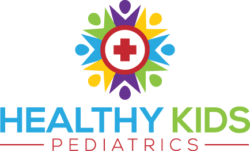by Coach Julian Ribinik

(In part two of this three-part series, Coach Julian focuses on how Peer Pressure can have a significant impact on the food choices that children/teenagers make and gives you some helpful tips on how to deal with it.)
CHANGE #2: Peer Pressure
Children and teens are often influenced by the opinions and behaviors of their peers, which can lead them to make unhealthy food choices. To counteract the effects of peer pressure, it is important to encourage open communication. This will provide a supportive environment in which they feel comfortable. We need to encourage our children to share their experiences and feelings.
Here’s how to start:

- Empower children and teens to make their own choices. Encourage them to make decisions based on what they believe is best for their health and well-being, rather than what their peers are doing.
- Provide alternative activities and options: Offer children and teens alternatives to unhealthy behaviors and activities, such as participating in sports, art, or other interests that do not revolve around food.
- Foster a non-judgmental atmosphere: Let your children know that they can freely express themselves without fear of judgment. Assure them that their thoughts and concerns are valid and that you are there to support them.
- Initiate conversations: Ask open-ended questions about their social interactions and experiences related to food. Prompt them to share their thoughts on how peer pressure affects their food choices.
- Actively listen: When your children share their experiences, listen attentively without interrupting. Validate their feelings and let them know that you understand their struggles.
- Discuss the importance of individuality: Help your children understand that it’s okay to have different preferences and make choices that align with their own values and well-being.
- Teach critical thinking: Encourage your children to think critically about the information they receive from peers. Help them question whether the choices promoted by others align with their own health goals.
- Practice assertiveness skills: Teach your children assertiveness techniques, such as saying “no” politely, suggesting alternative activities, or standing firm in their decisions. Role-play different scenarios to build their confidence.

- Provide alternative activities and options: Offering alternative activities and options can divert the focus from unhealthy peer influences centered around food. Engaging in physical activities, team sports, or individual hobbies can boost self-esteem, provide a sense of belonging, and distract from negative peer pressure.
- Organize healthy gatherings: Host social events or playdates that emphasize activities other than food. This could include outdoor games, arts and crafts, or movie nights.
By addressing peer pressure and providing strategies for navigating social situations, you can empower your children to make independent and health-conscious decisions, ultimately promoting healthier eating habits that align with their own well-being rather than solely conforming to peer influences. Remember to reinforce that their choices are valued and that their health comes first.
Moreover, helping your children to deal with peer pressure now will help them deal with it when they are older and things like alcohol and drugs are appearing on the horizon.
Stay tuned for Part three where I explain how fostering a positive mindset, promoting self-acceptance, and challenging negative beliefs can create healthier food choices.
Cheers to your health!
-Coach Julian
